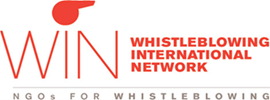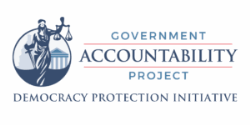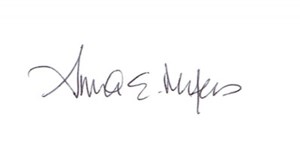

Carlos Manuel Rodríguez
Chief Executive Officer and Chairperson
Global Environment Facility Secretariat
Peter Lallas
Adviser to CEO & Conflict Resolution Commissioner
Global Environment Facility Secretariat
December 8 2021
Concerns about whistleblower retaliation and accountability related to UNDP GEF Energy Efficiency Standards and Labels project
Dear Mr. Rodríquez and Mr. Lallas:
Whistleblowing International Network (WIN) and Government Accountability Project are writing to urge the GEF to call on the UNDP
to urgently address an organizational culture that discourages people from reporting information about corruption and appears to support insiders who misappropriate funds.[1]
Specifically, we ask the GEF to request from the UNDP a full report on how it has fulfilled or intends to fulfill each of the recommendations of the Independent Review of UNDP GEF Russia energy efficiency standards and labels project (S&L project) (hereinafter “Independent Review”) and specifically, to detail the steps that have been taken to:
- establish an independent “follow-on investigation” into the claims of reprisals in the whistleblower case of Mr. John O’Brien and to engage in a speedy independent review the two whistleblower cases of Mr. O’Brien and Mr. Dmitry Ershov;
- assess the constraints and barriers to timely and coordinated responses to the substance of concerns raised whistleblowers and to their protection, and to set out how the Ombuds could play a larger role as a single point for contacts, guidance, mediation, and coordination for whistleblowers; and
- ensure accountability and transparency of the UNDP whistleblowing system through empirical and qualitative monitoring and annual reporting that focuses on actual performance as well as perceptions and experience of those who have interacted with the whistleblower system.
We commend and applaud the GEF Council Members’ decision to hire independent consultant Graham Joscelyne to prepare
the UNDP Third Party Review of Compliance with Minimum Fiduciary Standards. We fully support the recommendations of the Independent Review and in particular those on page 98 to review the internal justice system of UNDP, the UNDP’s ethics and integrity maturity, the UNDP Office of Audit and Investigation (OAI) reporting lines, as well as having external peer review quality assessment cycles every three years.
[2]
We fully support the GEF Council Members’ endorsement and adoption of these recommendations to the UNDP Executive Board in order that the decisions to review the UNDP internal justice system can be adopted at the January 2022 First Regular Session of the UNDP Executive Board.
Concerns about Individual Accountability and Whistleblower Retaliation
However, we share Transparency International (TI)’s concerns
[3] about UNDP’s handling of the UNDP GEF Russia energy efficiency standards and labels project (S&L project), particularly when individuals working for the project had raised serious and credible concerns of financial misconduct over a number of years and suffered unfairly for doing so. Donors commissioned an independent review of the S&L project. The final report concluded that there were issues with fraud, corruption, collusion, unethical practices, wrongdoing, and a failure to handle whistleblower cases in a satisfactory manner. It also revealed the problems to be systemic and relate to the culture of UNDP, whose management often fail to follow the rules with few consequences for people involved in wrongdoing and inadequate protection for whistleblowers.
[4] Beyond policy change, it is important that the UNDP take action to address the organizational culture that appears to support insiders who misappropriate funds and discourages people from reporting corruption allegations.
[5]
We are concerned to learn that since the 5 March 2020 letter from donors to UNDP Administrator Steiner asking for names and accountability, the UNDP does not yet appear to have disciplined any senior manager alleged to have participated in misappropriation of an estimated USD 4 million of taxpayer’s money. And we note with deep concern that staff who tried their best to report suspected corruption over many years have all faced problems. We have been told that no less than eight whistleblowers on the standards and labels project in Russia were subject to unfair workplace practices, including threats, harassment, termination, non-renewal of contracts, delays in payment, and what appear to be malicious and retaliatory investigations.
We are troubled to learn that in a 2021 EY Report, the UNDP Ethics Office only conducted four investigations into formal whistleblower retaliation complaints and found against the whistleblower in all four cases.
[6] We know from our joint experience working in the field over many years that the UNDP Ethics Office has a poor track record in protecting whistleblowers. It is unsurprising, and a clear indictment of the system, that none of the four complainant-whistleblowers sought further review under the internal justice system.
We share TI’s concern in relation to the EY report commissioned by UNDP that without including experiential data from those who have raised whistleblowing concerns, GEF Council members are likely to be relying on misleading information about the state of whistleblower protection at UNDP.
On 14
th June 2021, the UNDP informed donors that they accepted all recommendations from the Independent Review, including those concerning whistleblowers. However, it remains unclear whether any speedy review was done in the cases of Mr. John O’Brien and Mr. Dmitry Ershov, or by whom. Nor is it clear if there were any independent follow-on investigations specifically recommended into those individuals alleged to be responsible for retaliation, and some of whom may continue to work at the UNDP or other related international organizations, such as at the International Energy Agency (IEA).
In order to assist you, the GEF Secretariat and the GEF donors on this important issue, we set out a short list of Recommendations for your consideration in the attached document. Please know that we remain at your disposal to help in any way we can.
Sincerly,


Anna Myers, Executive Director Samantha Feinstein, International Director
Whistleblowing International Government Accountability Project
Network
Cc: Achim Steiner, UNDP Administrator – asteiner.office@undp.org
Antonio Guterres, UN Secretary General – ag@un.org
Bureau to the UNDP Executive Board, Ms. H.E Lachezara Stoeva,
H.E Ms. Yoka Brandt, H.E Mr. Lang Yabou, H.E Ms. Rabab Fatima
GEF Council Members
Recommendations for your consideration
We recommend GEF Council members ask the UNDP the following:
- to explain whether anyone at the UNDP has been held to account over what amounted to the misappropriation of an estimated $4 million USD[7] of taxpayers’ money when the project concluded in May 2017; and if they have been held to account, when and how this was done.
- to provide written evidence to GEF Council Members about how the whistleblower recommendations of the Independent Review have been implemented.
- to make sure that the GEF can obtain a copy of the EY report (even if in redacted form) to formally commission an updated report in time for the May 2022 GEF Council meeting. We recommend that such a report is commissioned by GEF Secretariat to avoid a conflict of interest with the UNDP. We further recommend that the observations of the multiple whistleblowers that have raised the alarm over the last five years be included in the updated report.
- to explain how it proposes to eliminate the potential for a serious conflict of interest with the Office of Internal Audit (OIA). As we understand it, the OIA is now responsible for determining individual and institutional accountability for any alleged misconduct, despite the fact the Independent Review highlighted the OIA as a main unit within the UNDP that, together with others in senior management, was responsible for the failures in handling and satisfactorily addressing both the information of financial wrongdoing and investigating the retaliation against those who reported it.
[2] UNDP Third Party Review of Compliance with Minimum Fiduciary Standards. https://www.thegef.org/council-meeting-documents/undp-third-party-review-compliance-gef-minimum-fiduciary-standards
[4] See Supra, Note 1,
inter alia, paragraph E25: “In several cases, at multiple times, the processes lacked due diligence to ensure good management of the fiscal resources for the project. The reviewer finds the most concerning issues to have been the poor sharing of information available between units, poor follow-up, a surprising lack of concern by some individuals, and weaknesses in the investigations into the project and related matters. The above lacunae allowed for conflicts of interest and potential “fraud” to persist through long periods, as the deficiencies, which were multiple and required coordinated management, were never fully addressed. Deficiencies in communications prevented the senior most management levels from being fully cognizant of the issues and the communications to stakeholders were deficient. Very rarely was any timely remedial action noted.”
See also paragraph E42: “This review placed a higher evidentiary value on reports prepared by external consultants. All external consultants (five different individuals), beginning in 2011, reported different degrees of dissatisfaction with the project and its activities. Each of them reported a certain amount of surprise, bemusement and, over time, highly negative reports on the quality of outputs, on the capacities of individuals working on the project, and on some of the processes followed. All of them were threatened with non-payment for their work and one consultant had his contract terminated due to his negative views.”
[5] See Ibid, Paragraphs 90-97 on pp. 33-34.
[6] EY, “Independent Advice on Certain Systems use by the United Nations Development Program to manage its Global Environment Facility Portfolio,” 11 August 2021.
[7] According to consultants Roland Wong and Alexei Zakharov who conducted the final “Terminal Evaluation” of the S&L project. At Pgs. 27, 31 and 59.
https://erc.undp.org/evaluation/evaluations/detail/9603